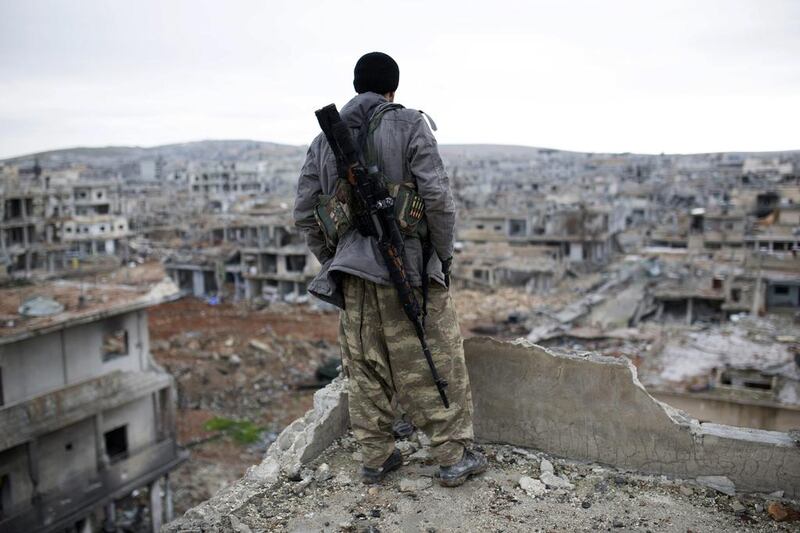In the summer of 1971, I spent some time in London on my way to Lebanon where I was to begin research for my dissertation. I had left the United States consumed by the long war in Vietnam. Out of my American bubble, I found a world in which, as the saying goes, all hell seemed to be breaking loose. There were coups, wars and ethnic strife consuming Northern Ireland, Sudan, Israel/Palestine, and India/Pakistan.
Being addicted to news, I would read as much of the press as I could each morning. I became intrigued by many of these conflicts and was satisfied, at first, by the reporting of daily developments in each crisis. What I found disconcerting, however, were the headlines, the opinion columns, the editorials and the political cartoons. All too often, they were, in a word, racist. Irish, African, Arab and South Asian alike were crudely caricatured. Each conflict was portrayed as the unfortunate but expected behaviour of lesser species.
How to account for this British fascination with and condescension toward these particular conflicts? All had been former British colonies and all these peoples had been (or, in the case of the Northern Irish, still were) British subjects. The empire was gone, but imperial conceit was alive and well.
I thought about this mindset last week during the western world’s celebrations of the 800th anniversary of Magna Carta. There were elaborate commemorative events and significant press commentary on the meaning of the document.
Writers, however, were not of one mind. Magna Carta was seen as either “the foundation of western liberalism and the bedrock of the rule of law” or as an “irrelevant document” whose importance has been “exaggerated and distorted”.
Those who made the “bedrock” case frequently quoted this Magna Carta passage: “No freeman shall be taken or imprisoned, or be wrongly deprived of his freehold or liberties, free customs, or be outlawed, or exiled, or any otherwise destroyed; nor will we pass upon him or condemn him except by the lawful judgment of his peers, or by the law of the land ... we will not deny or defer to any either justice or right.”
One can argue about whether this noble statement of rights was merely aspirational or inspirational, in that it provided the basis on which future generations could build. This debate, however, misses an important point.
I would argue that Magna Carta and its successors created the veneer of liberalism, tolerance, and rule of law. Donning the mantle of liberalism, Britain justified its imperial conquest and its subjugation of one-fifth of humanity as an enlightened and civilising venture. It claimed that the goal was to lift up the less civilised and prepare them for self-rule.
But however much apologists for the empire promoted this fiction, the reality was that it was an attempt to justify the plunder of the world’s riches and the enslavement of peoples. And, when the British Empire’s subjects rebelled, callous neglect or horrific violence followed. The histories of the Irish, the Africans, the Arabs and the South Asians are replete with tales of massacres, famine, mass imprisonment and torture. Thus the very rights that the British claimed for themselves were denied to those they saw as less deserving.
This is not just ancient history. It is playing out today as well and not just in the consequences of British (or French, or German, or American) imperial misadventures. This mindset informs the West’s portrayal of the East and its understanding of those peoples. The West still sees itself as the civilised world, the bearer of universal values. And the West still portrays the East as less civilised, more prone to violence, less respectful of human life and liberty.
No doubt, the brutality of Syria’s long and ugly war, the horrors perpetrated by ISIL, the grotesque sectarian violence in Pakistan, Nigeria and Myanmar, and the actions of Hamas help flesh out these caricatures. But before we make judgments about “the uncivilised East”, we need to recall the hundreds of millions killed by the civilised West in Europe and in the rebellious colonies in the last century.
This is why the starting point in any discussion ought to be one of self-awareness and humility on the part of the West. This does not render the West mute in the face of cruel acts of inhumanity. But it does caution against speaking from the vantage point of undeserved superiority, since, in many instances, it is western actions that may have spawned the very atrocities it is condemning. And because, in the past, the West may have behaved just as abominably.
Just as it was both unseemly and unproductive for the British press to demean the Irish or the Pakistanis, it is bad for Americans to ignore their recent history in Iraq, or for the Israelis to ignore their behaviour toward the Palestinians.
Only when the West understands and acknowledges its past and sheds its imperial conceit will it be ready to play a constructive role in challenging and correcting current abuses and working to create a better future.
James Zogby is the president of the Arab American Institute
On Twitter:@aaiusa





